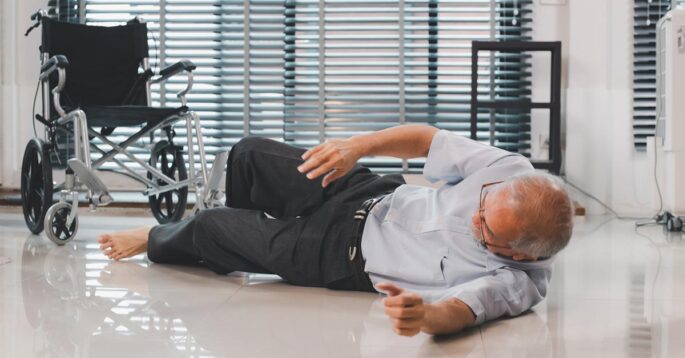Older adults face several safety issues while in assistive living facilities. Some accidents, like falls, can be difficult to prevent, especially for older adults who often have weaker legs and muscles. However, nursing home staff have a responsibility to address safety concerns to prevent these incidents and reduce the chance of injuries.
Learn about some of the top safety concerns for nursing home residents and what steps you can take if your loved one was harmed.
1. Falls and Tripping Hazards
Falls are the leading cause of injury for older adults. Part of the problem is that as people age, their bones shrink and their muscles become weaker and less flexible, which can cause instability.
An older person is admitted to the emergency room every 15 seconds because they were injured in a fall.
To make facilities safer and reduce the risk of falls, nursing home staff should:
- Encourage residents to be physically active when able to keep muscles strong
- Ensure area rugs and other loose objects are taped down to prevent tripping hazards
- Maintain proper lighting and clutter-free elevators or ramps to make walking around safer
Families of nursing home residents can also check their loved one’s room and the facility’s common areas for hazardous situations so they know their loved one is safe.
2. Insufficient Assistive Devices or Staff Training
Assistive devices like wheelchairs, bed rails, bed lifts, or bathing lifts help prevent falls and other accidents. Not having these devices increases the risk of injury.
For this reason, staff and loved ones are encouraged to:
- Install rubber mats, grab bars, and shower seats for bathtubs
- Provide walkers or canes for residents with mobility issues
- Recommend residents use assistive devices
However, even having these options still might not fully protect residents from unsafe environments. For example, some nursing home facilities fail to properly train staff on how to use lifts or bed rails safely, resulting in serious injuries and sometimes broken bones.
3. Abuse From Other Residents or Staff
Nursing home abuse can be physical, emotional, or sexual. Abuse can stem from other residents or even the staff members meant to care for them.
When nursing home abuse occurs, staff members are required to respond immediately to protect the safety of everyone involved. However, when staff members are responsible for abuse, residents can feel like they have nowhere to turn.
For this reason, family members are encouraged to be mindful of signs of abuse like bruises, sudden isolation, or depression.
If you or someone you love has suffered from nursing home abuse, you may be able to seek justice and financial compensation. Get a free case review right now to see how we can help you and your family.
4. Neglect From Staff
Nursing home neglect is more difficult to spot than physical abuse, as the signs might not be as noticeable, but it unfortunately affects far too many residents of long-term care facilities.
With understaffing in nursing homes on the rise, neglect may be more common with residents left alone or without frequent check-ins due to not enough employees being on the clock.
Neglect can come in many forms. It can start as social or emotional neglect when residents are left alone, ignored, or isolated from family or friends.
Neglect can eventually worsen and lead to:
These are just a few serious consequences of nursing home neglect that can put residents in dangerous situations or cause their wrongful death.
5. Medication Errors
Understaffing and improper staff training also increase the risk of medication errors, which can be life-threatening to residents.
Nursing home residents often need multiple medications for chronic conditions. Taking these without consulting a doctor or pharmacist can lead to side effects and harmful drug interactions.
Nursing homes were found to be overprescribing certain mood stabilizers and antipsychotics in a 2022 report from Health and Human Services, leading to the Centers for Medicare and Medicaid Services (CMS) launching an investigation.
For residents with memory issues, staff must carefully ensure the correct medications are given on time to avoid serious side effects or overdose.
Reporting Nursing Home Abuse and Finding Legal Help
Safety concerns for older adults should always be reported immediately to local Adult Protective Services. If someone is in immediate danger, call 911.
If your loved one was harmed after being put in unsafe conditions, legal help may be available to you. Filing a nursing home abuse lawsuit can help you and your family recover financial compensation to pay for resulting medical bills from an injury or the pain and suffering from the incident.
Nursing Home Abuse Center has partnered with top nursing home abuse lawyers across the nation. See if we can connect you with an attorney through a free case review now.

 Free Case Review
Free Case Review
